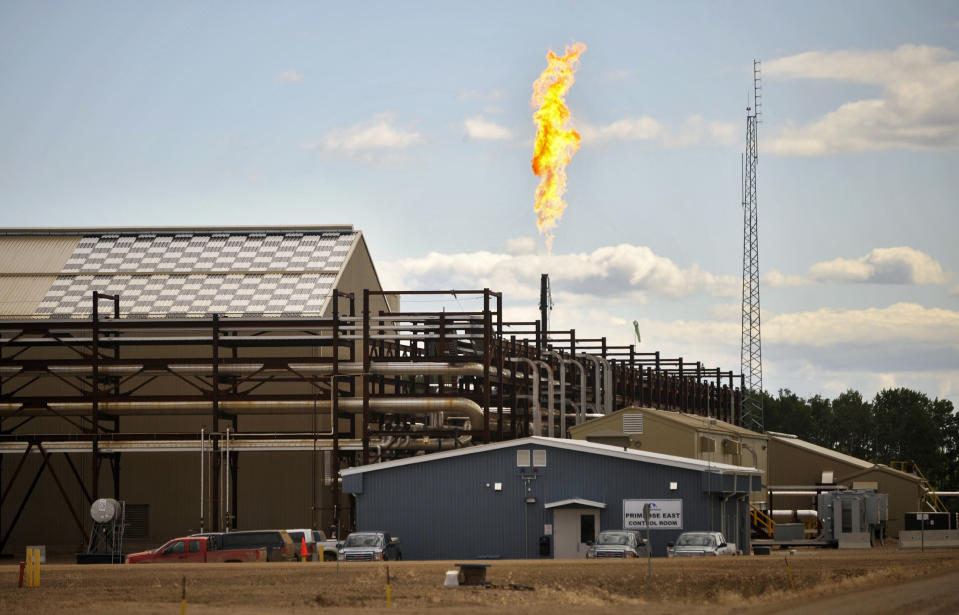Oilpatch monitoring halt deemed ‘low-risk’ by Alberta energy regulator

The Alberta Energy Regulator (AER) is standing by its controversial monitoring suspension in the oilpatch due the COVID-19 pandemic, calling the move “low-risk” amid mounting criticism from First Nations, environmental groups and opposition politicians in the province.
In a bid to protect workers in accordance with public health orders, Alberta’s energy regulator has halted a wide range of requirements mandated by oil and gas company licences.
Those include monitoring fumes released by burning, finding and repairing methane gas leaks, and testing surface water prior to an environmental leak. In-situ oil sands sites no longer have to conduct wildlife monitoring or research. Wetland reclamation and monitoring is also suspended under the orders issued this spring in response to COVID-19.
“Temporary suspensions in select environmental monitoring programs as a result of the COVID-19 pandemic is low-risk and should not significantly compromise the integrity of Alberta's long-term environmental information systems,” Alberta's chief scientist, Fred Wrona, said in a news release on Tuesday.
The AER said the suspensions impact between two and five per cent of overall monitoring requirements, and exclude measures for emergencies.
On Wednesday, a dozen First Nations and conservation groups sent a letter to federal Environment Minister Jonathan Wilkinson calling on Ottawa to force the Alberta government to reinstate environmental monitoring.
Meanwhile, three northern Alberta First Nations are attempting to appeal the suspension, citing a lack of consultation beyond those in the industry. They argue the AER has not adequately linked COVID risk to specific environmental monitoring tasks, while daily work continues at energy sites. The AER said the decisions were based on assessments by technical experts.
Alberta opposition leader Rachel Notley has been a vocal critic of the suspension. She’s calling for AER CEO Laurie Pushor’s resignation over the move, suggesting Pushor lacks independence from Premier Jason Kenney’s fiercely pro-energy government.
University of Alberta wetland ecology and management professor Lee Foote has spent nearly two decades working with major energy companies including Syncrude on reclamation projects.
He expects the industry will resist reinstating the monitoring requirements given the current demand and commodity price pressures battering Canadian producers.
“It appears to many of us as a gift to the oil sector in hard times, to let them off the accountability hook,” he told Yahoo Finance Canada. “It takes a long time to build up regulations and a short time to tear them down.”
The AER plans to reassess the decision after the Alberta government issues new public health guidance under its stage 2 plan, which is expected on June 12.
Jeff Lagerquist is a senior reporter at Yahoo Finance Canada. Follow him on Twitter @jefflagerquist.
Download the Yahoo Finance app, available for Apple and Android.

 Yahoo Finance
Yahoo Finance 
